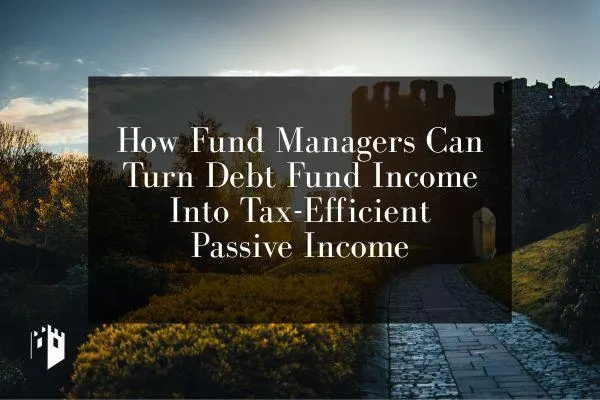
How Fund Managers Can Turn Debt Fund Income Into Tax-Efficient Passive Income
Most debt funds generate portfolio income. That means investors receive interest income, which is subject to both ordinary tax rates and the 3.8 percent net investment income tax. For high earners, the result is punishing.
But here’s what most fund managers don’t realize: with the right structure, debt fund income doesn’t have to be taxed this way.
The Problem With Portfolio Income
Interest income is not passive in the eyes of the IRS. It’s portfolio income. That classification shuts the door on offsetting it with passive losses like depreciation from real estate holdings.
The result: investors pay full freight, while fund managers lose a powerful tool for attracting and retaining capital.
The Trader Business Classification
When a debt fund is structured and operated as a “trader business” instead of a pure investment vehicle, the tax treatment changes.
Income reported to LPs can be treated as ordinary business income, not portfolio interest.
That business income is considered passive to investors.
Passive income can be offset by passive losses, including depreciation from real estate investments.
For investors who hold both debt and equity positions, this creates powerful synergies. Income from the debt side can be washed out by losses from the equity side, creating a near tax-neutral outcome.
Why Fund Managers Should Care
For sponsors running diversified funds, this strategy does more than reduce investor tax bills. It:
Expands the investor pool by attracting LPs who want tax efficiency.
Creates a stronger pitch to prospective investors.
Aligns debt fund offerings with equity investments for a more holistic strategy.
What Box-Checker CPAs Miss
A typical CPA won’t raise this. They’ll accept the default treatment and move on. But whether your debt fund qualifies as a trader business depends on specific factors and on how your documents are drafted. This requires coordination between your CPA, attorney, and fund administrator.
The Bottom Line
Fund managers who structure correctly win. Their investors get better after-tax returns. Their funds attract more capital. And their GPs avoid leaving opportunities on the table.
If your CPA hasn’t raised the question of trader business classification, you should be asking why.
It’s September. There’s still time to evaluate your structure and position your fund before year-end.
Book Your Tax Strategy Session





